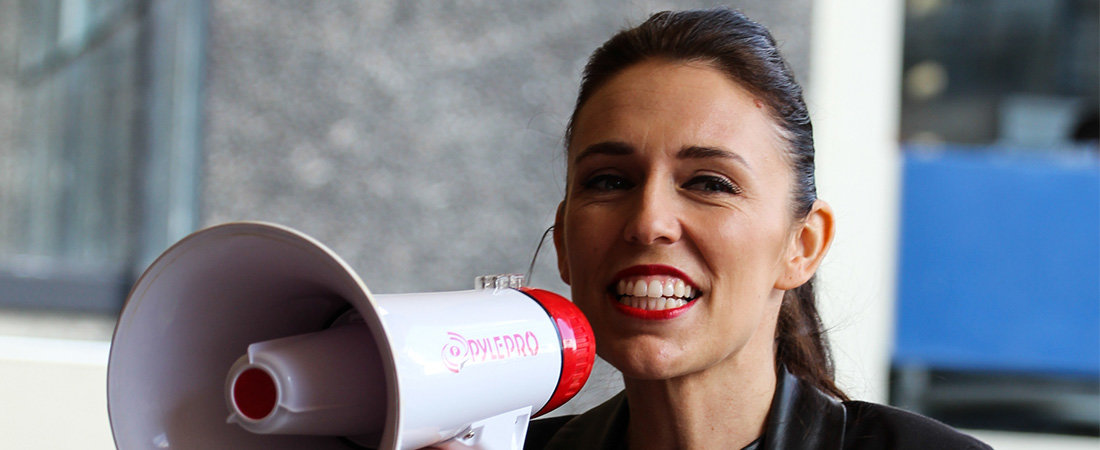In a year that’s seen Donald Trump’s inauguration and Theresa May’s General Election slip up, New Zealand has thrown up the latest electoral surprise. Their recent election resulted in the charismatic, yet divisive Jacinda Ardern being sworn in as the country’s youngest Prime Minister in 150 years.
The general election, held on September 23, resulted in no single party receiving an outright majority – something Kiwis have become accustomed to by the very nature of our Mixed-Member Proportional (MMP) electoral system, to make up the 120 seat parliament. What is most unusual about this election however, is that Labour, who are now back in office after 9 years on the opposition benches, are the first New Zealand government in almost 100 years to have lost the popular vote, but still managed to get over the line to form a Government.
New Zealand First, the closest New Zealand has to a ‘UKIP’, held the balance of power with nine MPs, and subsequently undertook two-weeks of parallel negotiations with the incumbent National party (who had 56 MPs, and 44.4 per cent of the vote), and Labour (with 46 MPs and 36.9 per cent of the vote).
Leader Winston Peters eventually opted for a coalition with Labour, supported by the Green Party (eight MPs), which he announced in spectacular fashion via a live press conference last Thursday evening local time. He didn’t see the need to give either side a heads-up before making the announcement, and thus, New Zealand’s new Prime Minister, Jacinda Ardern, 37, found out along with the rest of the nation.
As a result, New Zealand, not often thought of as a shining example of political change, has joined the growing list of democracies, who are looking to the younger generation to lead.
Jacinda Ardern will be one of the youngest leaders in the world. She took on the leadership of Labour less than two-months before the election, and has never served on the Government benches before.
It seems to be a growing trend across the world, that young – and in most cases politically untested – leaders are sweeping to power. From France, where Emmanuel Macron, 39, is the youngest leader since Napolean, to Austria who have just elected Sebastian Kurz, representing the far-right People’s Party at 31 years old. Ireland’s Leo Varadkar is 38, Justin Trudeau of Canada is 45, while former Italian Prime Minister Matteo Renzi was just 39 when he took office.
So what is it about this generation of leaders, and what could it mean for politics of the future? It’s fair to say, it’s not their policies that unite them. All have stood on varying policy platforms, that criss-cross the political spectrum.
It can be said however that the theoretical rules of the game are no longer true, and traditional campaigning is out the window – speak to anyone involved in the EU referendum, or the recent snap general election here in the UK. The power of social media, and the direct access this gives politicians to the voting public, means relatability is everything. No longer must the public rely on the mainstream media to catch up on the news. Instead, a photo of an aspiring leader with a kitten, a puppy, or just doing something normal like painting the fence (which is what Jacinda Ardern said she would be doing on election day this year) will do wonders for their name recognition, and relatability.
Social media means politicians can speak directly to the people they seek to represent, and are doing so in increasingly weird and wonderful ways. ‘Jacinda-mania’ swept New Zealand and completely turned our campaign on its head. And sure, there was an undercurrent of change already present in the national mood, but it was Jacinda’s down-to-earth normality that inspired the population towards change; confounding the pollsters – again – and shaking up yet another western democracy in the process.
Even here in the UK, the same could be said. Although he doesn’t have youth on his side, Jeremy Corbyn won the social media war hands down at the last election. The JC4PM and Momentum youth movement have built a cult of personality around brand Corbyn that is unprecedented in British politics. And as Theresa May struggled to shake off her ‘robotic’ label, Corbyn’s popularity went from strength to strength.
Meanwhile, back in New Zealand, the secretive manner in which coalition negotiations were undertaken to determine which party will lead, and the fact that the National party – who are embarking on three years in opposition, after nine in office – received more votes than any other, will make for a very tough three years for Prime Minister Ardern. One of her biggest challenges will be to reach out across the divide and convince the majority who didn’t vote for her, that she is the strong leader we need, youth and inexperience, or not.

